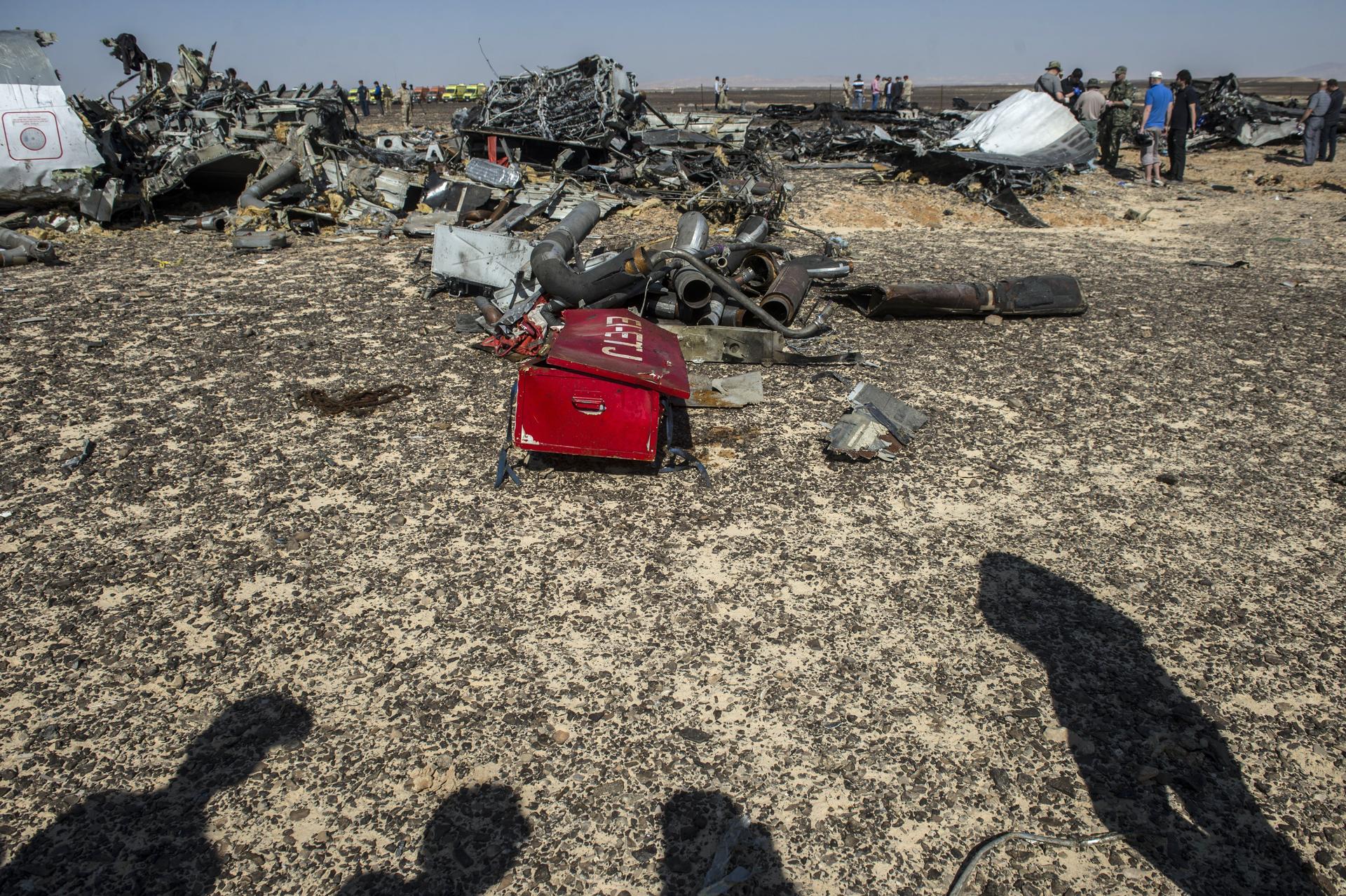President Sisi says Sinai security is under Egypt’s ‘full control’
Debris of the A321 Russian airliner lie on the ground a day after the plane crashed in a mountainous area in Egypt's Sinai Peninsula, on Nov. 1, 2015. International investigators are probing why the Russian airliner carrying 224 people crashed in the Sinai Peninsula.
Editor's note: This is Chatter, our morning rundown of what you need and want to know around the world. Fortunately for us all, you can have Chatter emailed to you every day. Just sign up here!
NEED TO KNOW:
What brought down a Russian airliner over Egypt and killed all 224 people on board? Not terrorists, no siree.
That’s according to Egyptian President and military man Abdul Fattah el-Sisi, who tells the BBC today that speculation the Islamic State caused Flight KGL9268 to crash over the Sinai Peninsula last Saturday is “propaganda.”
“When there is propaganda that it crashed because of [Islamic State], this is one way to damage the stability and security of Egypt and the image of Egypt,” Sisi said, responding to claims by an IS-linked Egyptian group that it targeted the plane in revenge for Russian airstrikes on Syria. “Believe me, the situation in Sinai — especially in this limited area — is under our full control.”
Your full control, really? You sure about that? Egypt’s authorities have been waging their very own war on terror in the Sinai for years. Chronic neglect and the security vacuum left by the fall of Egypt’s dictator of many decades, Hosni Mubarak, have turned the region into fertile ground for Al Qaeda and its affiliates — and, more recently, the Islamic State. The security forces’ anti-terrorism raids continue, and continue to kill scores of people.
But let’s put that aside for now and assume that Sisi is being frank. If terrorists didn’t down that plane, what did? It’s too soon to say, he insists, as do Russian authorities. US satellite imagery indicates that a missile hitting the jet mid-air is unlikely, but an explosion is possible. One thing’s for sure: With the Egyptian and Russian governments investigating, we’ll be guessing about who’s telling what truth for a while yet.
WANT TO KNOW:
There are times when you need to see color. When a crazy percentage of murders take young black lives, for instance. Or when one of the biggest cities in one of the world’s most diverse countries starts to look startlingly pale.
Take a stroll around the Zona Sul — South Zone — of Rio de Janeiro and you’ll see some of Brazil’s finest beaches, its most iconic views and its fanciest real estate. You’ll also see a lot of white people. A heck of a lot, considering that less than half of all Brazilians identify as white. Yet white folks occupy 80 percent of Rio’s ritzy beachside, according to a striking new map created by a Brazilian geography student.
“80 percent!” exclaims Hugo Nicolau Barbosa de Gusmão, the twentysomething who mined national census data to map out Rio’s racial makeup. “I knew it would be high,” he tells GlobalPost, “but I didn’t think it would be that stark.”
Stark it is. His maps picture a city where whites dominate the most prestigious neighborhoods and members of other racial groups — the majority nationwide, but a minority here — cluster together in small spots. In a country where policymakers too often deny seeing color, here are the color lines, drawn.
STRANGE BUT TRUE:
How about some soybean with your nicotine fix? No? Milk-tea-flavored puff doesn’t do it for you either? What about a lungful of vapor with just a hint of mango lassi?
For those who like their smoke sweet, Malaysia is the place to take a drag. The country is said to be the world’s second-biggest market for electronic cigarettes and vaporizers after the US, which may or may not be an exaggeration. What’s for sure is that Malaysian “vape juice” flavors are a darn sight more inventive than Menthol or Cherry Crush. Catering to local tastes, e-cig cartridges in Malaysia come in varieties as exotic as lychee, jasmine tea or rose water brewed with condensed milk.
The one teensy, weensy little problem with the country’s vaping craze: it’s un-Islamic. E-cigarettes, just like the real ones they replace, are considered “haram” — forbidden — by Malaysia’s religious authorities and proposals to ban vaping are circulating in the country’s parliament.
Is that set to stop anyone from inhaling? Um, is Crazee Mango-flavored vape juice delicious? We’re going to go ahead and say no.
We want to hear your feedback so we can keep improving our website, theworld.org. Please fill out this quick survey and let us know your thoughts (your answers will be anonymous). Thanks for your time!
